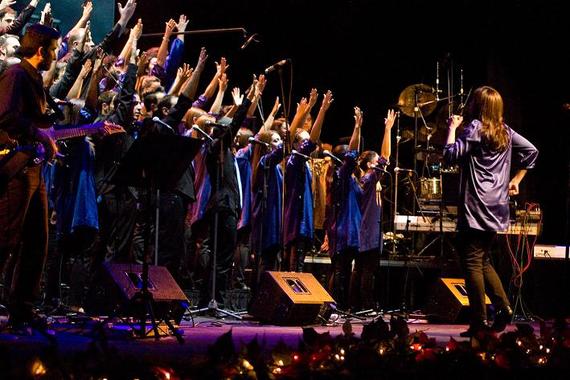I was raised as a devout Evangelical Christian. My readers know I discarded that identity as an adult and don't mince words whenever the subject of religion arises. But what many probably don't realize is that religion continues to impact my life in profound ways. Sociologists say that even American atheists are often "cultural Christians," as the roots of our identities come from the experiences of both our pasts and current surroundings. And most U.S. citizens were raised in and around Christianity.
Evangelical Christianity, which, like all religious systems, has a host of well-documented problems. But I won't be discussing those here, as it's something I do often. This is about the way communities shape our identities, and how good can be drawn even from the experiences of identities we later reject.
These five concepts exist in many other forms around the world, but I discovered them through being a Christian. After a few years outside the isolation of an Evangelical community, these are values I find most lacking in the mainstream and would pass on to others who are still building their own identities.
Intimacy is not just for romantic partners. Those who have spent a lot of time around Evangelicals will notice that they tend to have uniquely personal relationships with each other. Platonic male friendships are the most noticeable, as they veer outside the emotional boundaries of masculinity in mainstream culture. They're often physically affectionate, talk openly about subjects that make most people feel vulnerable and routinely say "I love you."
Caring for the needs of others leads to a happier life. When someone was without food, clothing, shelter or other necessities, the church would step in to help. And by "the church," I mean the people within it would often individually offer their assistance. Caring for others wasn't just a duty, it was viewed as a privilege. Through that service, people formed bonds that remained throughout their lifetimes and, as a bonus, ensured that goodwill existed for themselves if they fell onto hard times.
Using polite language averts hostility. This easy lifestyle choice is a valuable one for both professional and private interaction. Cursing and overt disrespect almost never lead to a better result, because displays of anger show a lack of self-control and stability while putting the other person on the defense. People have trust for individuals whose behavior isn't abusive, even when having a disagreement.
Music is an essential component of community. Evangelicals sing all the time. And despite what "Footloose" would have you believe, Christian usually love to dance. Music forms a huge part of religious identity. The worship songs of Christianity are often based on communal joy and celebration. Uplifting music is a reliable tool for easing social tension and bringing diverse groups of people together in a dynamic way.
Loving others is our primary responsibility. Evangelical Christians believe that love is greater than even faith, which is written by the Apostle Paul in 1 Corinthians. While one can turn on the news and see Christian leaders ignoring this value, it doesn't change the fact that the concept imprinted itself on my life. As a lifestyle vegan, civil rights advocate and progressive political commentator, love remains the guiding force in the derivation of my values.
Will I be returning to Evangelical Christianity? Nope. But that doesn't mean I can't use the best parts of my past to inform the choices I make as I step into the future.

